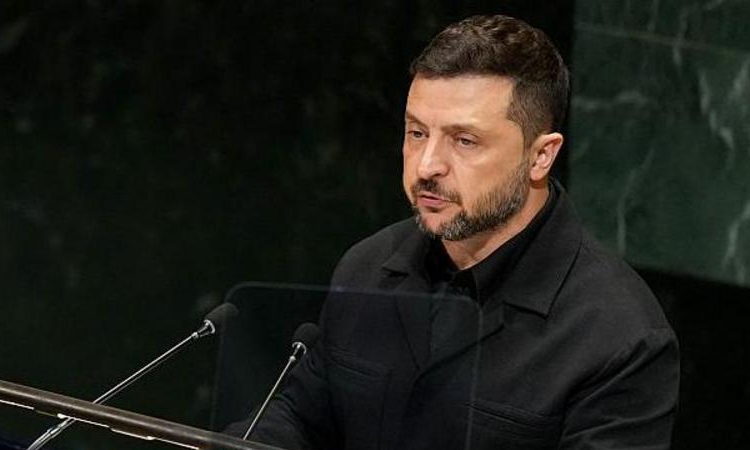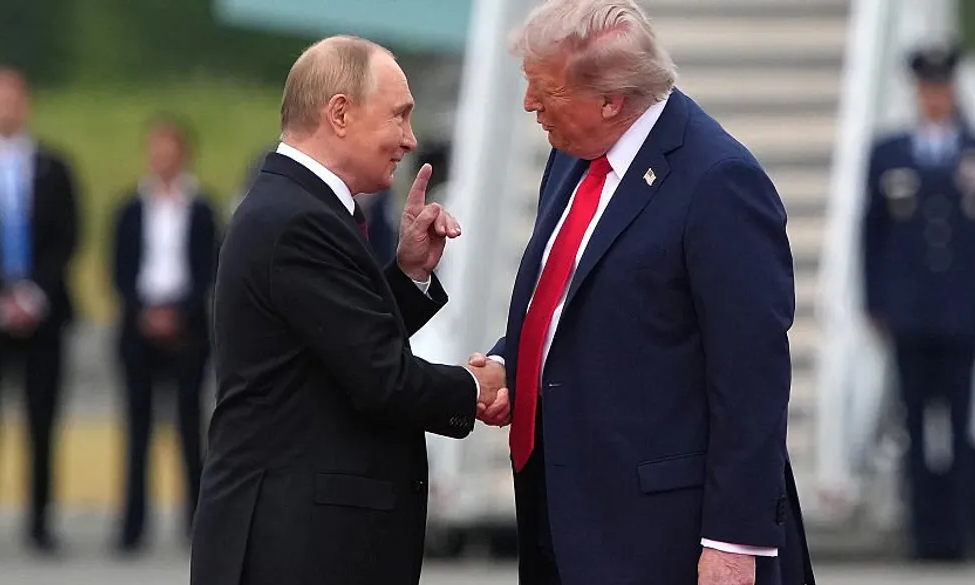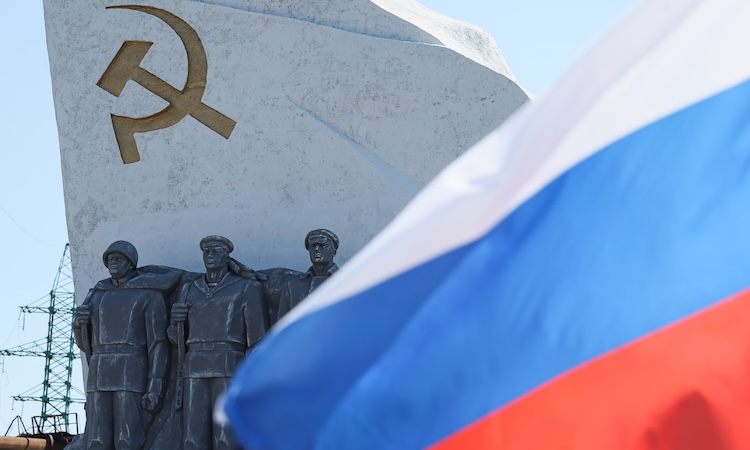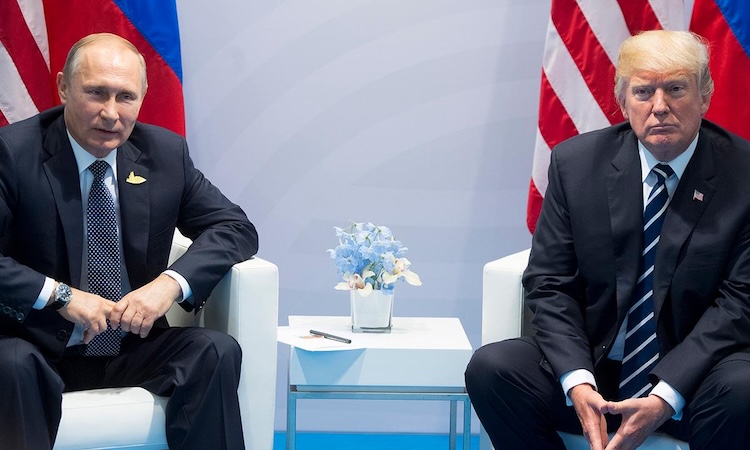French president Emmanuel Macron’s showy diplomatic efforts to whip the rest of Europe into line against Russia have so far only succeeded in emphasising the divisions within the western camp and by contrast the steady progress Russian forces are making towards their stated objectives in Ukraine.
The French president’s complaints about other (non-specific) European Union members being “cowards” for being lukewarm in their support for the US-backed junta in Kiev, coupled with broad hints that French troops could end up with their boots on the ground in Ukraine, have succeeded only in annoying France’s allies and revealing President Macron’s vaunted policy of ‘strategic ambiguity’ to be so much hot air.
Macron went on French television to claim that France was a “force for peace” standing behind Ukraine, and to warn: “If we let Ukraine lose this war, then for sure Russia will threaten Moldova, Romania and Poland.”
Invited by a French newspaper to explain his Ukraine policy, Macron wound up contradicting himself, by turns threatening and placating Russia and finally lapsing into complete incoherence. “Maybe at some point – I don’t want it, I won’t take the initiative – we will have to have operations on the ground, whatever they may be, to counter the Russian forces. France’s strength is that we can do it.”
So that’s clear then: he doesn’t want to send French troops into Ukraine, but there will have to be operations on the ground at some point, but Macron won’t take the initiative, but France is strong enough to send troops, or maybe not …
Moscow’s response to this tedious rigmarole is unambiguous: if French troops enter Ukraine, under whatever pretext, they will be recognised as invaders and destroyed.
German generals spill the beans
Meanwhile, whilst Germany’s chancellor Olaf Scholz may bridle at the suggestion of French boots on the ground, fearing that this will bounce the rest of Europe into an unwelcome face-off with Russia, it turns out that his own generals are merrily chatting on an insecure line about how many missiles it would take to blow up the Kerch bridge to Crimea and how many British troops are already on the ground in Ukraine.
“Released on Friday by the editor of the Kremlin-controlled news channel RT, Margarita Simonyan, the audio recording – confirmed as authentic by Germany – captures Luftwaffe officers discussing how Berlin’s Taurus missiles could be used to try to blow up the Kerch Bridge connecting Russia with occupied Crimea.
“During the conversation, Lt Gen Ingo Gerhartz, the head of the Luftwaffe, describes how Britain works with Ukraine on deploying Storm Shadow missiles against targets up to 150 miles behind Russian lines.
“‘When it comes to mission planning,’ the German commander says, ‘I know how the English do it, they do it completely in reachback. They also have a few people on the ground, they do that, the French don’t.’
“Reachback is a military term to describe how intelligence, equipment and support from the rear is brought forward to units deployed on the front, but Gerhartz suggests the British approach is deeper, involving support on site.” British soldiers ‘on the ground’ in Ukraine, says German military leak by Dan Sabbagh and Kate Connolly, The Guardian, 4 March 2024)
Chancellor Scholz has excused his reluctance to furnish Kiev with long-range German-made Taurus missiles by arguing that this cannot happen without German boots on the ground, which is a red line that cannot be breached. But the garrulous Luftwaffe know different: “the French don’t” have people on the ground.
Europe in a panic as the USA heads for the exit
The EU accomplices in this American war were happy to swear allegiance to Ukraine so long as the USA had their backs and the dollars and the weapons kept on flowing. Even when the sanctions war against Russia blew up in their faces, the gutless EU still kowtowed to Washington, preferring to empty their arsenals of weapons and deindustrialise their economies sooner than consult their own national interests.
But now that it becomes clear that the USA is racing ahead of Europe when it comes to disengaging from the Ukraine war, Europe is beginning to wake up to the catastrophic mess it has helped to create.
US president Joe Biden may still believe that Ukraine is winning the war and the moon is made of green cheese, but far better indices of the national mood in the USA are the blocking by Congress of the $60bn US military aid package for Ukraine and the sacking of the foremost architect of the failed Ukraine war, Victoria Nuland.
Her last job was as acting deputy secretary of state covering the recently retired Wendy Sherman. Nuland looked set to take on the post permanently, but was pipped at the post by Kurt Campbell. Campbell, who was the architect of President Barack Obama’s ‘pivot to Asia’ is still dining out on the book he wrote about the rationale for that shift back in 2016.
The message coming from Washington to its European allies is clear: you sort out the mess on your continent whilst we pursue our interests elsewhere.
Russia’s plain-speaking foreign office spokeswoman Maria Zakharova was in no doubt as to the significance of Ms Nuland’s departure.
“It is simple – the failure of the anti-Russian course of the Biden administration. Russophobia, proposed by Victoria Nuland as the main foreign policy concept of the United States, is dragging the Democrats to the bottom like a stone.”
And it is not only the russophobe administration of Joe Biden that is sinking like a stone, but the whole prestige of the USA is sinking with them, as the world looks on aghast at the barbarism of America’s proxy war, fought indeed to the last drop of Ukrainian blood.
Desperation in Kiev
Reports coming out of Ukraine reveal the blind panic of the Kiev junta as the realisation dawns that they are simply running out of bodies and are reduced to sending press gangs on to the street to snatch reluctant recruits.
According to the Washington Post: “President Volodymyr Zelensky and his top military commanders have failed so far to come up with a clear plan to conscript or recruit many thousands of new soldiers critically needed to defend against Russia’s continuing attacks.
“Zelensky’s inability to forge a political consensus on a mobilisation strategy – despite months of warnings about a severe shortage of qualified troops on the front – has fuelled deep divisions in Ukraine’s parliament and more broadly in Ukrainian society.
“It has left the military relying on a hodgepodge of recruiting efforts and sown panic among fighting-age men, some of whom have gone into hiding, worried that they will be drafted into an ill-equipped army and sent to certain death given that aid for Ukraine remains stalled in Washington.
“The quandary over how to fill the ranks has confronted Zelensky with perhaps the greatest challenge to his leadership since the start of the February 2022 invasion. The lack of a clear mobilisation strategy – or even agreement on how many more troops Ukraine needs – factored into Zelensky’s dismissal of his top general in February, but the new commander in chief, Oleksandr Syrskyi, so far has brought no new clarity.
“Syrskyi has been tasked with auditing the existing armed forces to find more combat-eligible troops, after Zelensky’s office recently announced that of the one million people who have been mobilised, only about 300,000 have fought at the front lines.
“But nearly a month after his promotion, no one in the military leadership or the presidential administration has explained where those 700,000 are – or what they have been doing.” Zelensky in bind over how to draft more troops as Russian forces advance by Siobhán O’Grady and Serhii Korolchuk, 4 March 2024)
And while the Ukrainians count the cost in lives, German workers count the cost in redundancies and lay-offs. According to Bloomberg, Germany is in recession and the Bundesbank says Germany is in a six-month slump. (Germany is in recession due to first-quarter slump, survey shows, Bloomberg, 18 March 2024)
Other Bloomberg headlines are uncompromising: “German factory orders slump in new sign of economic slowdown” and “Germany’s days as an industrial superpower are coming to an end”.
As Germany waves farewell to cheap gas from Russia and easy access to an expanding Chinese market, the full damage done to the economy by setting Germany’s national interest in second place to her shield duty for Uncle Sam is becoming clear.
















